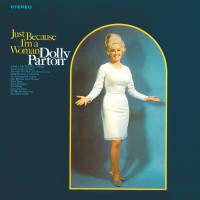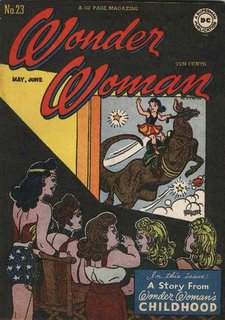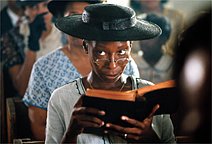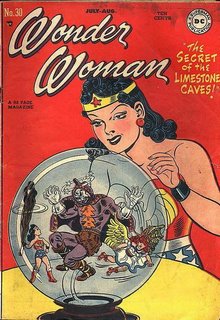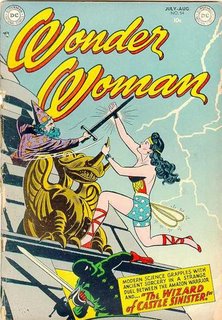
Some nights ago, I zoned out in front of dreamy Anderson Cooper’s news program. As one of his minions reported on the Catholic Church’s recent attempt to expunge gay men from seminaries, I began to think of my own relationship with “the” church.
Having been raised Catholic, I have plenty of complaints about the Catholic Church. One could never know when the priest would suddenly start screeching about sexuality. What you could count on was that, when he finished, you needed to say 250 rosaries. That could take forever.
My parents both had tremendous devotion to the Church, eventually becoming mayordomos for their parish. Even as a child, however, I tended to be suspicious about the Catholic Church’s rigid structures. Catechism teachers, for instance, required us to learn the names of each piece of the priests and nuns’ outfits. Even at that young age, I thought that heaven would not possibly refuse admittance to people because they couldn’t distinguish wimples. Then again, I don’t have evidence that it doesn’t.

Historically, Catholicism most often encouraged blind reverence and fear of authority. Priests and Bishops demanded obedience, often thwarting social change. In terms of sex, the Church created generations of men and women dominated by shame, guilt, inhibitions, and a lack of self-esteem.
Back in the day, though, the Catholic Church had some consistency. They hated all sexuality. According to these men-in-dresses, all sex resulted in burning torment in hell whether it was gay, straight, or single-handed. Sure, the priests made some distinctions of degree. For instance, they really, really hated birth control. Yet, they also hated fertility research, which they argued was as “unnatural” as birth control. Nor did they encourage people to have a zillion children. Rather, they (unrealistically) told everybody, married or single, not to have any sex whatsoever. More children, after all, delayed the second coming. The current Catholic Church, however, has become increasingly hateful as they now specifically target gay men and women as the ultimate threats to civilization as we know it.
Discussions about Catholics’ obligation to fight for Social Justice, in contrast, seem long forgotten. The current pope even persecuted Liberation Theologians in Latin America before he put on the miter.

Organized religion appeals to people because it provides a purpose for living and explanations about dying. It is not hard to understand, therefore, why people would be hesitant to let go of their religious institutions. These meta-discussions prove too complex for me to grasp. After all, I am equally suspicious of claims that humans have figured out everything about the universe through scientific reasoning.
What I also can’t ignore is that much of my sense of morality and understanding of the world also resulted from childhood Catholic teachings. I have already noted that the saints occasionally come to my aid when in trouble. When we weren’t learning about the priests’ wardrobe changes, our catechism class also emphasized a connection and obligation between all people. Certainly these ideas created my nascent understanding of our common humanity.
Cosmic balance and justice seem to be ideas that flow through many religious systems. You would be amazed at how easily Catholic training can be translated to ideas about karma. The expression “If you sow tears, you will reap sadness,” works for both Catholicism and Buddhism, for instance. Religious symbols also can be powerful allies in efforts for community mobilization. It was not an accident that the UFW marched under Our Lady of Guadalupe when they sought fair and safe working conditions. The image of a Virgin who kicks ass for social justice appeals to me.

All of our religious backgrounds need acknowledgment, even if we no longer find them valuable for our day-to-day life. If we now identify as secular, we also can’t allow institutions like the Catholic Church to continue to claim authority over all of our histories and symbols of morality. After all, many of our ideas about justice developed from those earlier teachings.
















